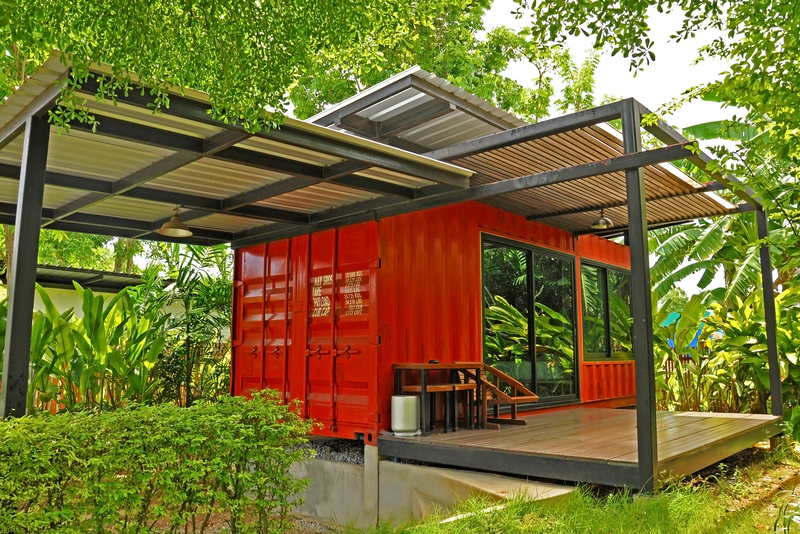Creative Strategies for Recycling Restaurant Food Waste
In the hustle and bustle of the culinary world, food waste remains a challenging yet crucial topic. Restaurants, with their high-volume operations, often generate significant amounts of food waste. However, innovative minds in the sector have been developing various strategies to recycle and minimize this waste effectively. This guide unveils some of the most creative and sustainable methods that restaurants are adopting to tackle this issue.
Understanding the Importance of Food Waste Management
Before diving into solutions, it's essential to understand why managing food waste is important. Mismanagement of food waste contributes to environmental degradation. As organic waste decomposes in landfills, it releases methane, a potent greenhouse gas. By recycling waste, restaurants not only contribute to a healthier environment but also typically enjoy cost savings and enhanced societal reputation.

Key Creative Strategies for Recycling Restaurant Food Waste
Restaurants can employ a range of strategies to address food waste. The following methods provide environmentally-friendly solutions to repurpose and recycle food waste:
1. Composting
One of the most effective ways to recycle food waste is through composting. Composting transforms food scraps into nutrient-rich soil that can be used to enrich gardens and agricultural fields. Here are a few steps to implement composting in your restaurant:
- Set Up Compost Bins: Place bins in both kitchen and dining areas. Educate staff and customers on what can be composted.
- Partner with Local Farms: Collaborate with farms to utilize compost for their crops, creating a circular resource system.
- Use Eco-friendly Products: Switch to compostable utensils and take-out containers to minimize non-biodegradable waste.
2. Food Donation
Excess edible food can be repurposed to benefit those in need. Donating surplus food is an effective strategy to ensure that no edible food goes to waste. Here's how your restaurant can start:
- Identify Nonprofits: Work with food banks, soup kitchens, and shelters to donate leftover food.
- Implement a Food Recovery Program: Establish a system to safely store and transport donated food.
- Legal Protection: Understand the Good Samaritan Food Donation Act which protects businesses donating to charities.
3. Creative Menu Planning
Strategic menu planning can significantly cut down the waste produced in a restaurant. By creatively planning your menu, you can maximize ingredient use and reduce food waste:
- Design Seasonal Menus: Use locally sourced and seasonal produce to optimize fresh uses and minimize spoilage.
- Implement Root-to-Stem Cooking: Use all edible parts of produce that are often discarded due to unfamiliarity.
- Utilize Leftovers: Create creative and new dishes using leftovers, such as soups, stocks, and sauces.
4. Animal Feed
Another practical and sustainable method to manage food waste involves converting scraps into animal feed. This strategy not only manages waste effectively but also supports local agriculture:
- Coordinate with Local Farms: Network with nearby farms that can use your fruit and vegetable scraps for livestock.
- Adhere to Regulations: Ensure compliance with local guidelines on transforming waste into animal feed.
- Promote Eco-friendly Narratives: Share the story behind your animal feed program with customers to boost brand authenticity.
5. Anaerobic Digestion
Anaerobic digestion is a sophisticated technology that transforms organic waste into renewable energy. While it requires more advanced infrastructural setup, the benefits can be groundbreaking:
- Install Digesters: Utilize digesters which break down organic material in an oxygen-free environment to produce biogas.
- Generate Energy: Convert the resultant biogas into electricity, heat, or vehicle fuel.
- Use Byproducts: Utilize the remaining material post-digestion, known as digestate, as a fertilizing agent.

Additional Benefits of Recycling Restaurant Food Waste
Engaging in sustainable recycling practices reaps numerous benefits beyond mere waste reduction. Restaurants can greatly enhance their operational efficacy, economic standing, and social image by investing in these initiatives.
Cost Savings
By revisiting waste management operations, restaurants can significantly cut down disposal costs. Smart recycling maneuvers help reduce financial outlays associated with waste, such as trash collection fees.
Enhanced Brand Image
Today's consumers are more aware and appreciative of companies contributing positively to the environment. Restaurants that integrate environmentally-friendly practices into their ethos gain added appreciation from customers, boosting loyalty and community standing.
Regulatory Compliance
Many local governments are instituting stricter regulations surrounding waste management. By proactively adhering to sustainable practices, restaurants can ensure they are meeting, and even exceeding, regulatory expectations.
Conclusion: Pioneering a Greener Path Forward
The issue of food waste is an ongoing challenge that needs innovative solutions. By leveraging creative recycling techniques, restaurants can become pioneers of sustainability, setting a benchmark for the industry. Sustainable waste management is not only a responsibility but a pathway towards enhancing profitability, community goodwill, and environmental stewardship. Let today's waste solutions pave the way for greener, more promising tomorrows in the culinary industry.